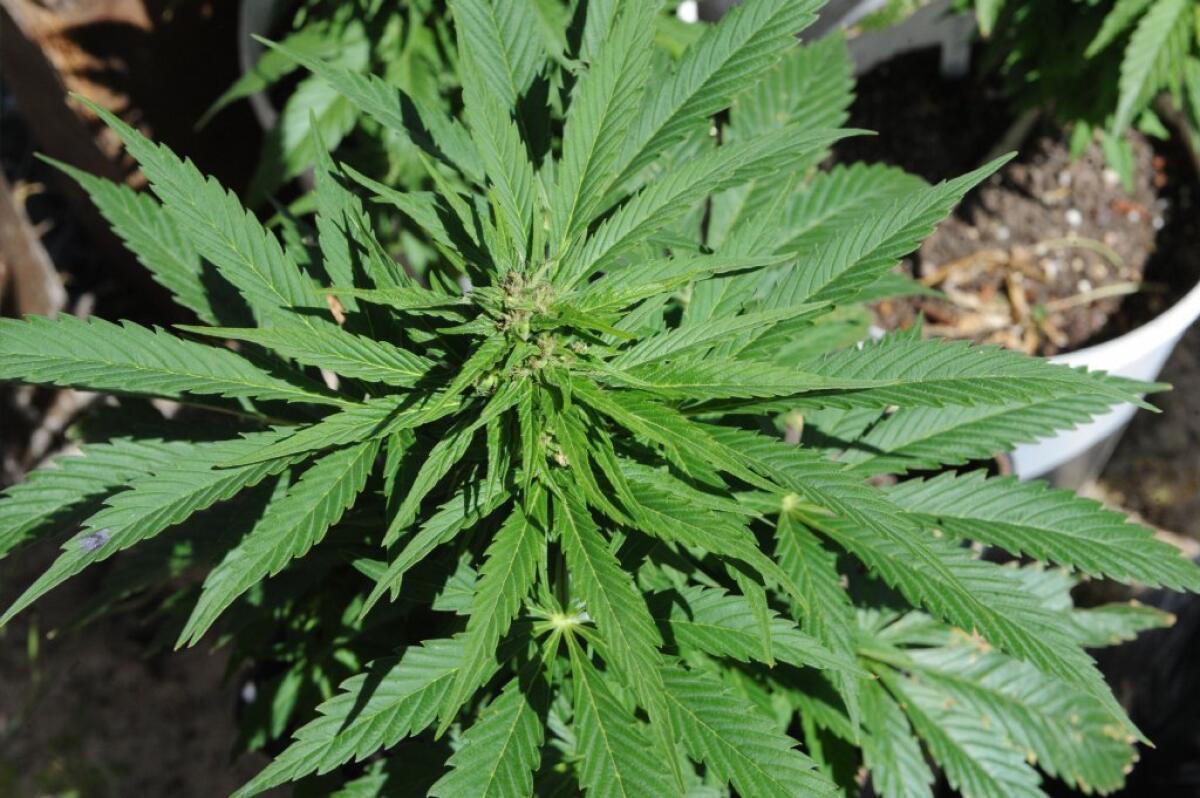Coming soon: A preview of a new, legal marijuana landscape in the U.S.

Mark Kleiman is a UCLA public professor and a go-to guy when it comes to drug policy analysis; it’s a field he’s studied for years, including the consequences and mechanics of the pendulum swings of criminalizing and legalizing marijuana.
Lately, the goalposts — at least from the point of view of the legal marijuana lobby — have moved, and Kleiman consulted with Washington state’s liquor control board about the rules of the road for the state’s Jan. 1 legal marijuana market.
I talked with Kleiman for my “Patt Morrison Asks” column.
YEAR IN REVIEW: Washington’s 5 biggest ‘fails’ of 2013
He’s been assessing law enforcement and marijuana in the evolving legal marijuana world. He’d told Washington state that legalizing didn’t mean not policing in the new marijuana market; it may in fact require more at the outset, to make certain the new rules are followed and an illicit market doesn’t persist.
And on the other end, he told me that even in a nation where cannabis is still officially classed with cocaine as far as federal drug policy is concerned, “we don’t incarcerate a lot of people for cannabis. That’s another piece of mythology. There’s about a half-million people behind bars for drug offenses; about 40,000 of those are [for] cannabis, and they’re almost all dealers.” While there are a lot of arrests, he says, “not a lot of people go to jail for marijuana use.”
Marijuana laws have not curbed marijuana use; what was one-sixth of the illegal drug trade by dollar value 20 years ago is now half.
YEAR IN REVIEW: Columnist Patt Morrison on what she won’t miss
As for comparisons to the benefits and harm of Prohibition, Kleiman said that early on, the alcohol ban did have a salubrious effect. Cirrhosis deaths dropped by two-thirds, and “if we’d tracked domestic violence back then, I think you would have seen a big reduction in domestic violence.”
Then, he pointed out, “the bad guys organized the market and Prohibition broke down.”
Next year’s legalizations in Washington state and Colorado will provide, on a small scale, some lessons about what a nationwide stand-down from the criminalization of marijuana might look like.
(Kleiman’s standard answer to all inquiries about whether he smokes or has ever smoked marijuana is no answer.)
ALSO:
The righteousness in Hobby Lobby’s cause
What Obama should do if he wants young people to sign up for Obamacare
Follow Patt Morrison on Twitter @pattmlatimes
More to Read
A cure for the common opinion
Get thought-provoking perspectives with our weekly newsletter.
You may occasionally receive promotional content from the Los Angeles Times.







